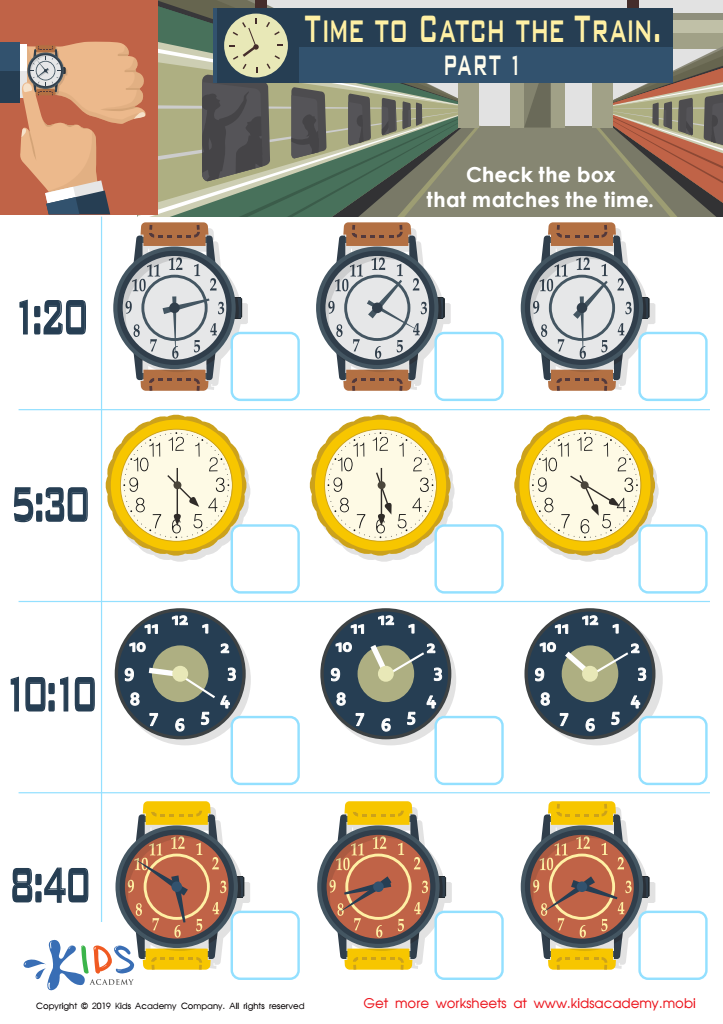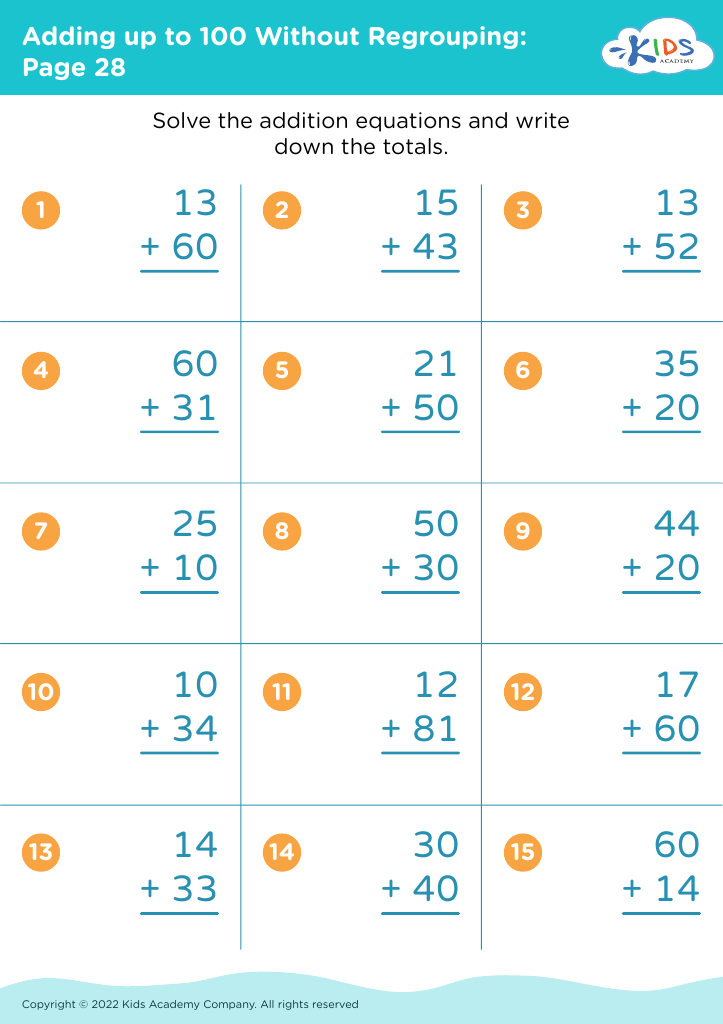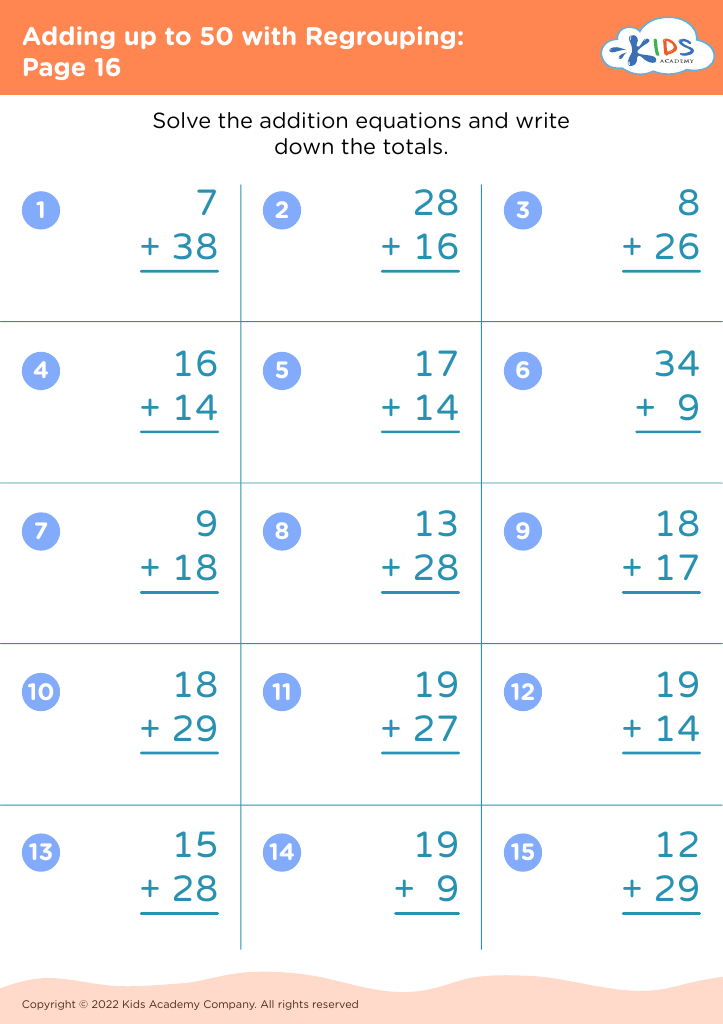Critical thinking development Math Worksheets for Ages 6-8
4 filtered results
-
From - To
Unlock your child's potential with our Critical Thinking Development Math Worksheets for ages 6-8! Our expertly designed worksheets focus on enhancing math skills while promoting essential critical thinking abilities. With engaging activities and thought-provoking problems, children will master concepts such as addition, subtraction, and basic geometry. Each worksheet encourages analytical thinking, problem-solving, and logical reasoning, essential for their overall cognitive development. Perfect for home or classroom use, our printable resources make learning fun and effective. Help your child build a strong foundation in math and critical thinking today with our comprehensive worksheet collection! Explore more and download now at Kids Academy.


Time to Catch the Train Part 1 Worksheet
Critical thinking is a cornerstone for lifelong learning and problem-solving, making it crucial to develop these skills in children aged 6-8, particularly through math. At this stage, children are naturally curious and beginning to understand how to organize and analyze information. Integrating critical thinking into math education offers them a structured way to enhance these abilities.
First, critical thinking in math helps children move beyond rote memorization of numbers and formulas. Instead, they learn to approach problems methodically, evaluate different strategies, and understand why specific solutions work. This analytical approach encourages deeper comprehension and long-term retention of mathematical concepts, setting a strong foundation for future learning.
Second, critical thinking skills are highly transferable. When children practice these skills through math, they become more capable of applying them in other subjects and everyday situations. This adaptability is invaluable in the highly connected and rapidly changing world they are growing up in.
Lastly, engaging children in critical thinking through math encourages perseverance and resilience. By learning to tackle challenging problems and persist until they find solutions, children build confidence and foster a growth mindset. These attributes not only contribute to academic success but also equip them to navigate life’s various challenges more effectively.
Parents and teachers, by emphasizing critical thinking in early math education, empower children with skills essential for both immediate and long-term success.



 Assign to My Students
Assign to My Students




















